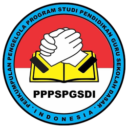MODEL KONSELING KELOMPOK UNTUK MENINGKATKAN SELF-EFFICACY MAHASISWA
DOI:
https://doi.org/10.21009/PIP.271.4Keywords:
model, group counselling, self-efficacy, behavior-cognitive group counsellingAbstract
This research aimed at producing a group counselling model to improve the students’ self-efficacy at Gudance and Counselling Department of School of Education, State University of Jakarta. The students 2007 academic year were writing their thesis. Taking a place in Gudance and Counselling Department of School of Education, State University of Jakarta, the research was conducted in the academic year of 2011/2012. The sample of 48 students were selected by random sampling from the students registered ini 2007. The research and development method was employed and the data were collected using the instrument of Multicultural Counselling Competence for counsellor candidates, which had been validated and its realibility had been tested. The findings wre classified into two groups. The first indicated 52.1% of the students have high self-efficacy. The second, the predictive effective group counselling model predicted was behavior-cognitive group counselling. The prodused model consisted of rationale, objective, main componen, format, session, counsellor’s roles, counselling phases, and success indicator. The research recommended Gudance and Counselling Department, students and researchers to do further research testing the effectivness of the model to improve students’ self-efficacy.
Downloads
Published
How to Cite
Issue
Section
License
Authors who publish with this Journal agree to the following terms:
- Author retain copyright and grant the journal right of first publication with the work simultaneously licensed under a creative commons attribution licensethat allow others to share the work within an acknowledgement of the work’s authorship and initial publication of this journal.
- Authors are able to enter into separate, additional contractual arrangementfor the non-exclusive distribution of the journal’s published version of the work (e.g. acknowledgement of its initial publication in this journal).
- Authors are permitted and encouraged to post their work online(e.g. in institutional repositories or on their websites) prior to and during the submission process, as it can lead to productive exchanges, as well as earlier and greater citation of published works.
-
Users/public use of this website will be licensed to CC BY-NC-SA Creative Commons Attribution-NonCommercial-ShareAlike 4.0 International License












